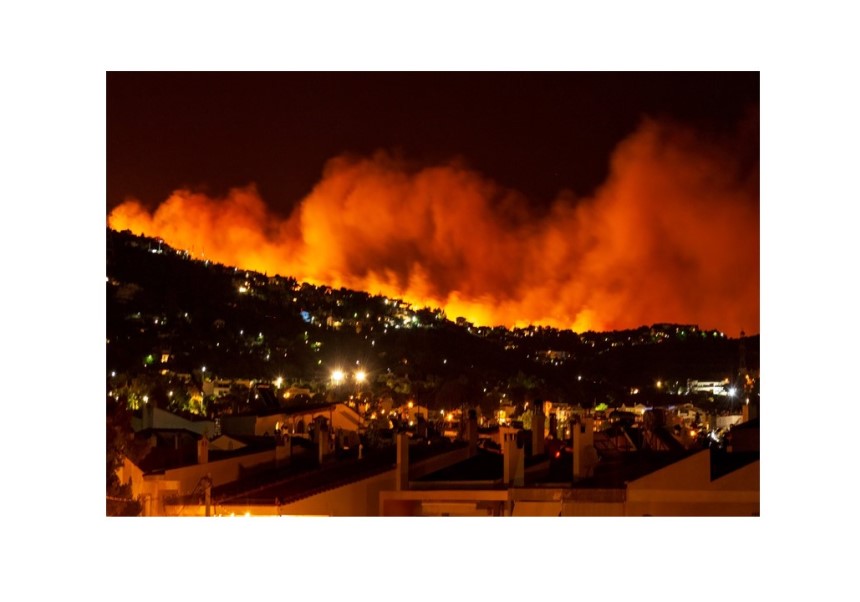
The European project FirEUrisk, in which CSIC participates, highlights the importance of educating the population in prevention and decision making to save lives in forest fires.
It has developed tools to integrate fire prevention and suppression considering not only climate, but also people, infrastructure and socioeconomic impacts.
During large-scale fires, authorities have the priority of saving human lives. However, the increasing virulence of forest fires means that the work of firefighters and firefighting resources are no longer sufficient. Faced with this type of situation, the Desertification Research Centre (CIDE, CSIC-UV-GVA) participates in the European project FirEUrisk, which aims to improve forest fire management throughout Europe. "We must work with the population to prepare people so that they can face these situations," explains project coordinator and researcher at the University of Coimbra (Portugal) Domingos Xavier Viegas.
Most fires occur due to human activity and negligence. However, the latter can be avoided by informing the population on how to prevent ignitions and on how to act when a fire has already started. "Our message to the population is to save their lives, that is the most important thing. These are fires that spread with such intensity that with current technology we cannot stop them. Therefore, help may not arrive. It is important to realize this," Viegas stresses.
According to the project coordinator, here are some recommendations for action in the vicinity of a forest fire:
- Act quickly: "If people find themselves in a situation where there may be a fire around them or approaching, they should make decisions quickly".
- Escape immediately: "If people feel it is best to get away, they should leave the scene well in advance, not wait until the last minute".
- Seek shelter: "If escape is not an option, seeking shelter is essential".
Citizen participation becomes even more relevant under the new reality of climate change. "There is a very irregular distribution of rainfall and extreme temperatures, they appear almost randomly. We now face more fires in spring, in March and April; and the fire season extends into late summer, even into autumn, with fires burning until the end of September, October and sometimes even November," Viegas explains. In such a volatile situation, conditions can change suddenly and complicate fire suppression work. Therefore, experts stress that, in order to save lives, populations must be prepared and know how to respond.
Fire-based decision tools
FirEUrisk works with authorities at local, national and European levels to improve decision making and public information through scientific research and fire risk assessment tools. One example is the development of a fuels map based on existing vegetation cover in Europe.
Of all the factors involved in the onset and behavior of fires, "vegetation is the only factor that we can modify and change in some way," says the project coordinator. The European map developed within the project provides researchers with resources to understand fire behavior. It is also useful for policy makers as it allows a strategic calculation of fire risk that includes not only climate, but also homes, people and infrastructures.
These tools are key considering that the current drought and extreme temperatures have resulted in the hottest July on record to date, in the northern hemisphere. "The lack of rainfall has created a cumulative effect on vegetation dryness," Viegas explains.
The current drought conditions are causing fires to spread very rapidly and with great virulence. This is the current situation in Portugal, Spain and Greece, where the drought is much more severe. "The consequences have been devastating: fires have already ravaged Sicily, Sardinia and Rhodes, forcing thousands of people to assess these tourist destinations. These fires can very easily threaten people's lives," he concludes.
The FirEUrisk project
FirEUrisk is a project funded by the European Union, through the Horizon 2020 framework program, focused on developing a scientific strategy to prevent and respond to forest fires in Europe. The project, which brings together 39 expert institutions from around the world, analyzes fire risk and how to manage it by developing new tools that assess fire danger and the vulnerability of communities and landscapes. These strategies will be tested in demonstration areas and implemented to adapt all European countries to changing climatic conditions.
This project has been granted funding from the European Union’s Horizon 2020 research and innovation programme under the Grant Agreement no. 101003890. More information about the project at: https://fireurisk.eu/
CIDE Communication









